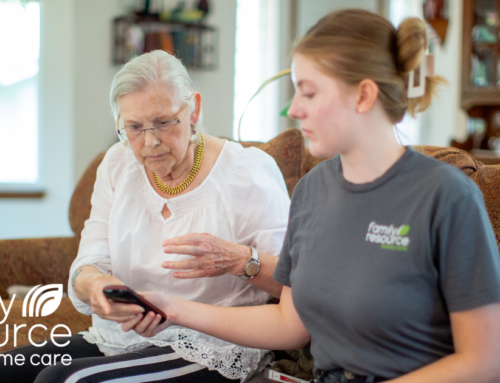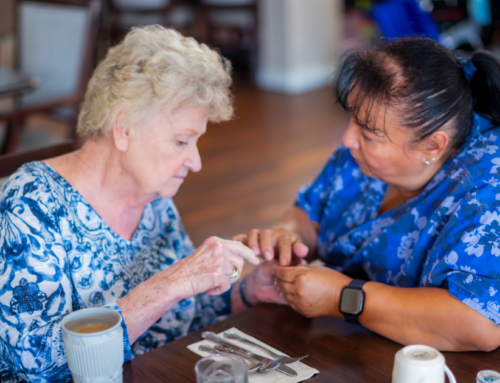There is growing evidence that exercise affects brain health, helping senior care management become more aware. Almost one-fifth of people 65 years and older have some kind of mild cognitive impairment which can progress to dementia and Alzheimer’s. Want a better memory? Move more.
Aerobic exercise in senior care management
Aerobic exercise boosts the brain, enabling healthy blood flow to the brain and whole body. Research indicates that blood vessels feed the neurons that age faster. Thus, exercising protects these blood vessels.
Aerobic exercise allows for greater blood flow to the brain and especially to the hippocampus which is important for memory. Keeping your blood vessels healthy could possibly reduce memory loss and reduce the risk of Alzheimer’s disease. A host of other issues can accompany unhealthy blood vessels–high blood pressure, heart disease, stroke, and many more.
Activities to promote blood flow for brain health
Besides hydration, here are foods and activities for brain health:
- Limiting salt intake
- Take a good multivitamin (including vitamin D, magnesium, and omega-3 EPA/DHA supplement
- Enjoy an ounce of dark chocolate every day (cocoa flavanols)
- Ingest more green, leafy vegetables, berries, cayenne, pumpkin seeds, and beets
- Increase intake of magnesium and potassium rich foods (avocados, spinach, sweet potatoes, nuts, and seeds)
- Get at least 7-8 hours of sleep at night
Inflammatory diets raise risk of dementia
Inflammatory diets are linked to the acceleration of aging in the brain and to dementia. Inflammation is our body’s response to stress or injury. In the brain, however, inflammation or neuroinflammation is linked to many disorders and recently to Alzheimer’s. Research indicates patients with chronic inflammation have the most white matter damage in the brain. White matter carries information between nerve cells. Damage to these cells may result in dementia.
Prioritizing physical activities to maintain blood vessel health as well as ensuring intake of healthy foods for your loved one is vital to reducing dementia and more.






